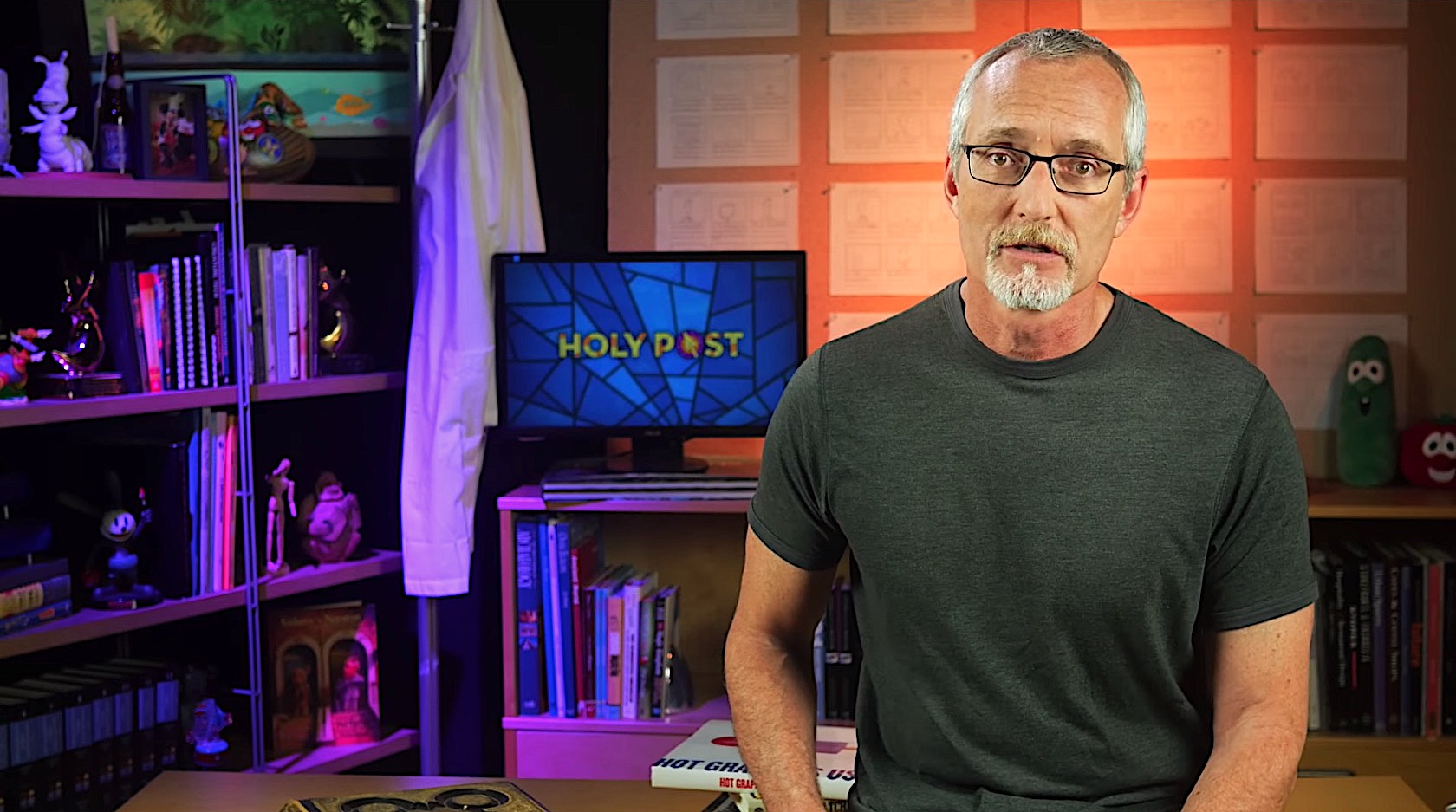VeggieTales creator Phil Vischer clearly explains systemic racism, mostly for a white audience seeking to understand


A free daily email with the biggest news stories of the day – and the best features from TheWeek.com
You are now subscribed
Your newsletter sign-up was successful
"Who had 'the creator of VeggieTales and voice of Bob the Tomato carefully narrates the history of race in America over the last 100 years' on their 2020 bingo card?" one Twitter user asked, pointing to a new video by Phil Vischer that explains why people are in the streets protesting racism and police brutality to an audience that may actually want to understand. Specifically, "why are many white, conservative Christians calling for racial justice?" Vischer asked. "Didn't we end discrimination years ago?"
"Slavery ended 150 years ago, the civil rights movement was 60 years ago, racial discrimination is illegal now," Vischer, co-creator of the popular Christian animated series VeggieTales and host of the Holy Post podcast, continued in the video. "Heck, we even had a black president. So why are people still upset? We're going to go through history and we're going to look at some data, and we're going to go quickly so this video doesn't go too long." The video is 17 minutes, but it packs a lot in, including scripture:

"So where are we?" Vischer summarized. "The average black household has 1/10th the wealth of the average white household. This didn't happen by accident, it happened by policy. We, the majority culture, told them where they could live and where they couldn't. Then we moved most of the jobs to the places we told them they couldn't live. When the predictable explosion of unemployment and poverty resulted in a predictable increase in drug use and crime, we criminalized the problem. We built $19 billion of new jails and sold grenade launchers to the police. As a result, a white boy born in America today has a 1 in 23 chance of going to prison in his lifetime. For a black boy, it's 1 in 4. And that is why people are angry."
The Week
Escape your echo chamber. Get the facts behind the news, plus analysis from multiple perspectives.

Sign up for The Week's Free Newsletters
From our morning news briefing to a weekly Good News Newsletter, get the best of The Week delivered directly to your inbox.
From our morning news briefing to a weekly Good News Newsletter, get the best of The Week delivered directly to your inbox.
Vischer has been studying this issue for a while. He covered systemic racism in a 2014 podcast and he wrote this script with his brother Rob, dean of the St. Thomas University Law School in Minneapolis, with whom he taught a class on Black Lives Matter that led to a 2017 podcast that led to this video.
"I'm not here to tell you what the right solutions are, because I don't know," Vischer said. "I'm just here to ask you to do one thing — it is the thing that begins every journey to a solution for every problem. What am I asking you do to? Care."
A free daily email with the biggest news stories of the day – and the best features from TheWeek.com
Peter has worked as a news and culture writer and editor at The Week since the site's launch in 2008. He covers politics, world affairs, religion and cultural currents. His journalism career began as a copy editor at a financial newswire and has included editorial positions at The New York Times Magazine, Facts on File, and Oregon State University.
-
 At least 8 dead in California’s deadliest avalanche
At least 8 dead in California’s deadliest avalancheSpeed Read The avalanche near Lake Tahoe was the deadliest in modern California history and the worst in the US since 1981
-
 Political cartoons for February 19
Political cartoons for February 19Cartoons Thursday’s political cartoons include a suspicious package, a piece of the cake, and more
-
 The Gallivant: style and charm steps from Camber Sands
The Gallivant: style and charm steps from Camber SandsThe Week Recommends Nestled behind the dunes, this luxury hotel is a great place to hunker down and get cosy
-
 ‘One Battle After Another’ wins Critics Choice honors
‘One Battle After Another’ wins Critics Choice honorsSpeed Read Paul Thomas Anderson’s latest film, which stars Leonardo DiCaprio, won best picture at the 31st Critics Choice Awards
-
 Son arrested over killing of Rob and Michele Reiner
Son arrested over killing of Rob and Michele ReinerSpeed Read Nick, the 32-year-old son of Hollywood director Rob Reiner, has been booked for the murder of his parents
-
 Rob Reiner, wife dead in ‘apparent homicide’
Rob Reiner, wife dead in ‘apparent homicide’speed read The Reiners, found in their Los Angeles home, ‘had injuries consistent with being stabbed’
-
 Hungary’s Krasznahorkai wins Nobel for literature
Hungary’s Krasznahorkai wins Nobel for literatureSpeed Read László Krasznahorkai is the author of acclaimed novels like ‘The Melancholy of Resistance’ and ‘Satantango’
-
 Primatologist Jane Goodall dies at 91
Primatologist Jane Goodall dies at 91Speed Read She rose to fame following her groundbreaking field research with chimpanzees
-
 Florida erases rainbow crosswalk at Pulse nightclub
Florida erases rainbow crosswalk at Pulse nightclubSpeed Read The colorful crosswalk was outside the former LGBTQ nightclub where 49 people were killed in a 2016 shooting
-
 Trump says Smithsonian too focused on slavery's ills
Trump says Smithsonian too focused on slavery's illsSpeed Read The president would prefer the museum to highlight 'success,' 'brightness' and 'the future'
-
 Trump to host Kennedy Honors for Kiss, Stallone
Trump to host Kennedy Honors for Kiss, StalloneSpeed Read Actor Sylvester Stallone and the glam-rock band Kiss were among those named as this year's inductees
